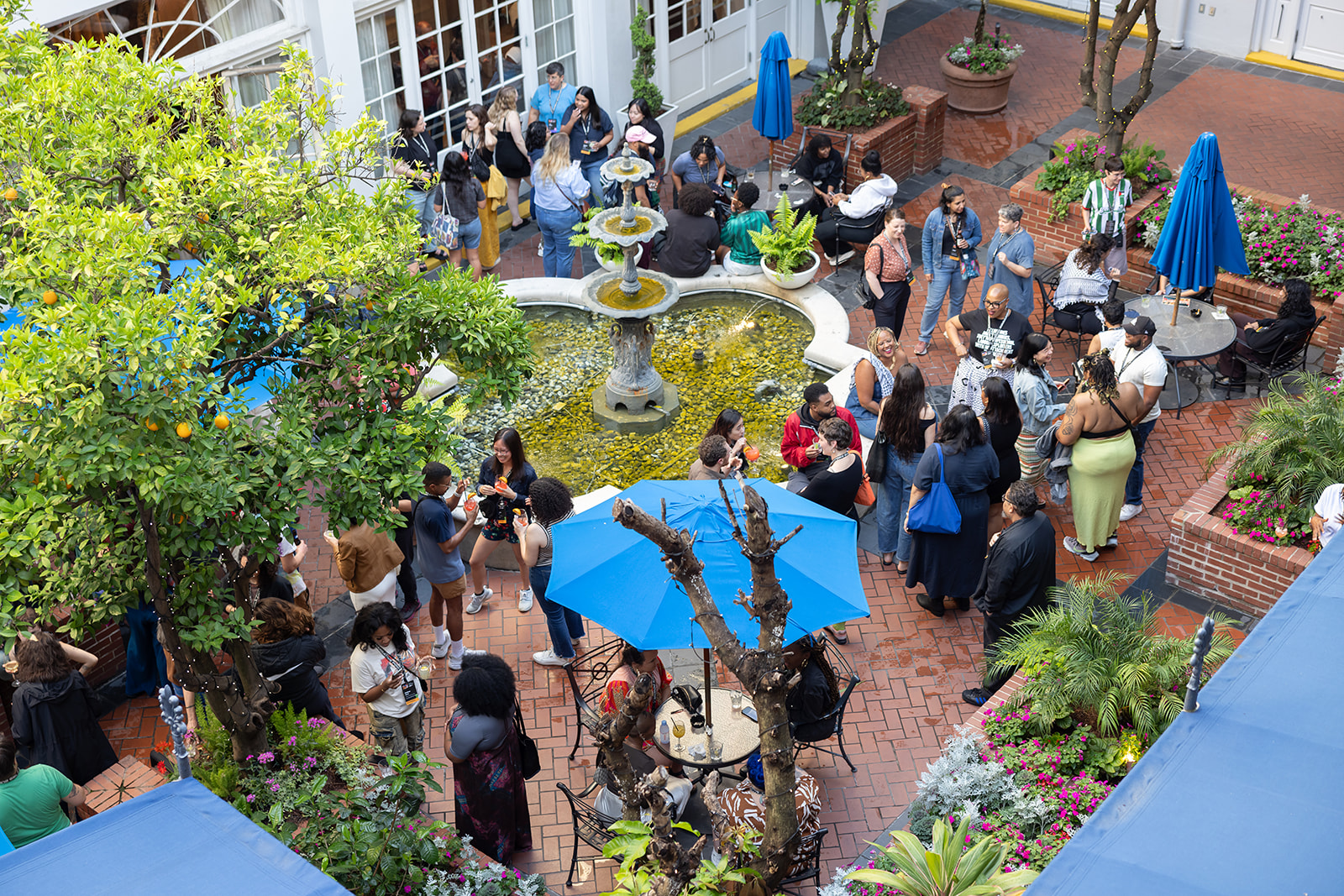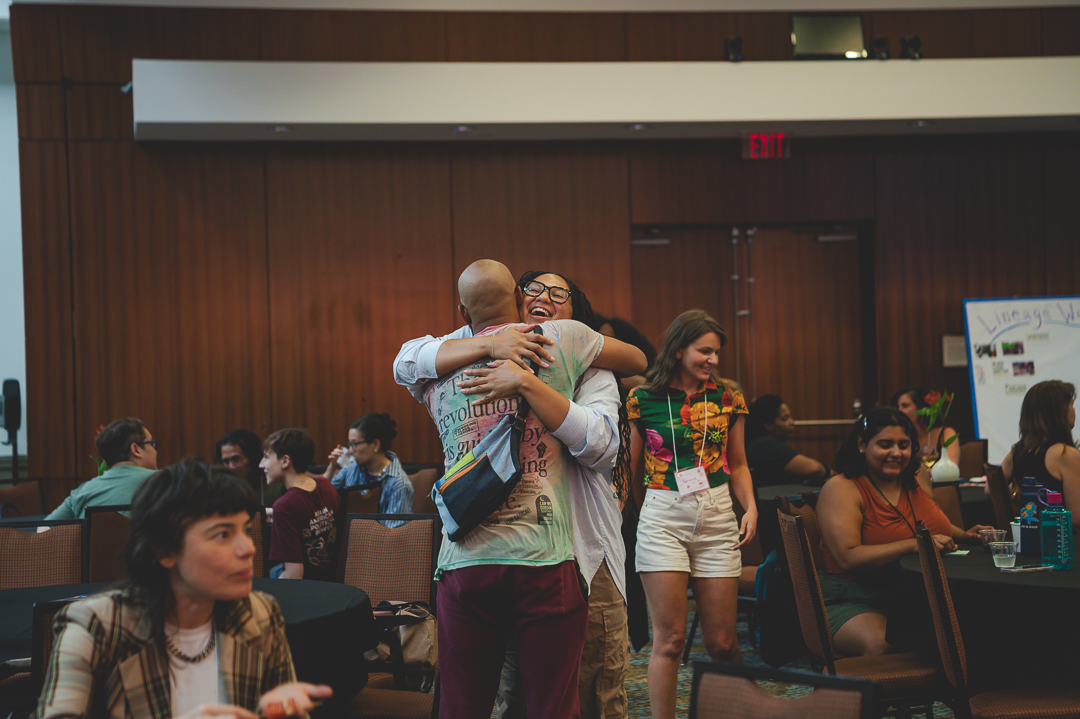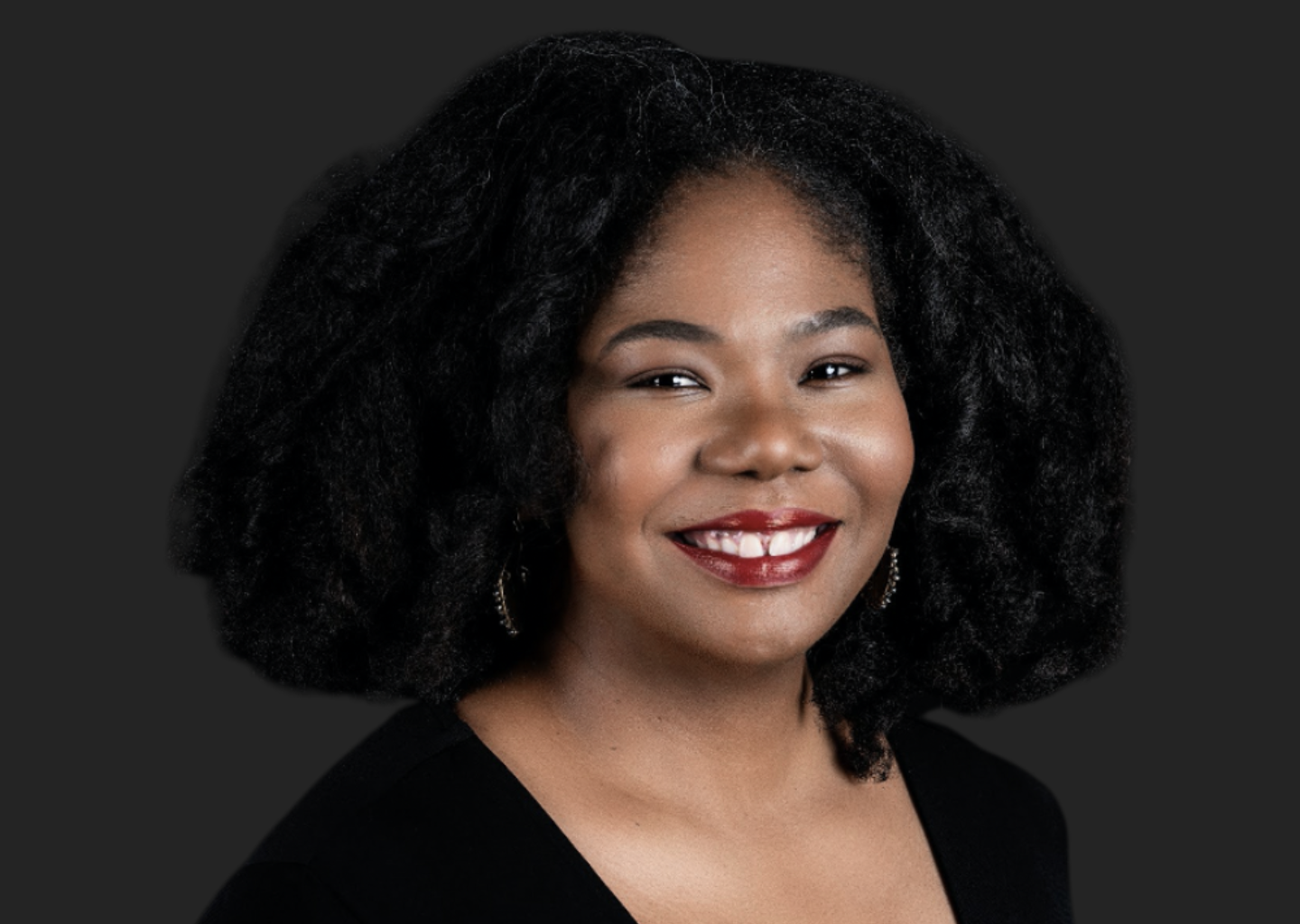“We are stronger when we fight together and we are not just fighting for ourselves and our immediate workplace issues,” says Crystal Luo, graduate student at University of Virginia and member of United Campus Workers Virginia (UCWVA). “We are also fighting for our students, their families, and our communities to make public higher education a real force for civic good in our commonwealth and in the country.”
As we grow the narrative power ecosystem we need to win we are taking moments to highlight the awesome strategists we get to work with. Luo was a participant in the ReFrame Summer Academy and we took a few minutes to check-in on how she is doing.
Luo works as a member of the steering committee and at UCWVA, where she is also responsible for communications. The union is based in Charlottesville and is organized under Communications Workers of America and part of the larger United Campus Workers Family. The mission of UCWVA is to bring together workers at Virginia’s public higher education institutions to build worker power by advocating for workers rights, fighting for fair and equitable wages and benefits, and defending the most systems impacted groups.
What are the narratives and big stories that your organization is pushing against?
Luo: Not only are we fighting against this big idea that Virginia is not good for workers and our organizations, but also the notion that there is nothing we can do about it. This idea that there is nothing we can do is precisely what bosses want us to believe so that we don’t join together and build the power we need to improve our lives, and those of our families and communities. This idea or belief that we can’t change anything is the narrative that undergirds the legal barriers to workers rights in our state. These laws can be changed and conditions on the job can be changed. Where we find common cause we can find power, we can change laws, change jobs, and change hearts and minds.
Another thing we are challenging is this idea that teachers and graduate students are not workers in the traditional sense. A lot of academics don’t think of themselves as workers and this belief ultimately benefits the university at the expense of all campus workers. If we look at instructors, they do not own the university, but their labor produces wealth for the institution - they are workers. A lot of our work is helping instructors and fellow grad students see ourselves as people who do labor for a university that is extremely wealthy and our labor contributes to that university's wealth and the well-being of our students. This has been one of the things we are trying to effectively communicate.
Finally, as a wall to wall union, we are pushing back against the belief that someone in custodial has nothing in common with a faculty member at the same institution. We are sharing stories that show there is more in common between these two types of workers than the university wants you to believe. We build power by fostering solidarity so that all university workers have dignity on the job, equitable pay, and better working conditions.”
What strategies do you use to advance your mission?
Luo: “One is public pressure around single-issue campaigns. We found that launching public campaigns where we exhibit our strength with large majorities in our workplaces, confront bosses directly and large public petitions has helped move certain issues. These work because bosses need public pressure to do what we want them to do - offer concessions to workers and students. And in some cases, even if they don’t want to do it, we know their reputation is staked on having students and workers be in a happy harmonious relationship with them.
We’ve saved jobs and stopped people from being let go. We’ve made sure graduate students hold on to dissertation advisors that they want to work with. We are hoping to expand and be more ambitious on what we do next.“
Where and how are you seeing organizations and movements advancing powerful narratives and stories?
Luo: “In Virginia, there is a lot of great organizing around public education. I’m inspired by teachers unions across the country. Many have done such amazing work with bargaining for the common good framework that we’ve adopted at UCWVA . Teachers are well positioned to use the tool of collective bargaining to win big for themselves and their communities.
Unions like the Chicago teachers union and the Los Angeles teachers union advanced the narrative that labor organizing is for workers AND it’s for their communities – and communities can be as large as city or state, and I find that very powerful.
I’ve seen nurses unions across the country advance the idea that workers are embedded in our communities and we can use labor organizing to make big employers bring benefits to all of us and not just a segmented few. We are seeing that pay real dividends with Striketober that we just came out of in 2021. Support for unions is the highest it's been in decades because people see that when workers do well, those benefits can expand to the entire workplace or community. That is a really successful effort on the part of union members in pushing back against the narrative that they only want more for themselves and they are not here for all of us.”
What do movements and orgs need to do better when it comes to narrative and comms work and how do we get them to do so.
Luo: ”I feel like organizations can improve on being a bit more ambitious with who their audiences are. That means crafting language that resonates with where our audiences are while also moving them into action and alignment with our narratives. We shouldn’t default to the forms of communications that may be comfortable for us, like social media. We also need to use channels that our audiences relate to and trust, like local media.
Also, not letting insider language box us in. As a labor union we have a set of terms and rhetoric that we can easily draw on but we also want to be an organization that is embedded within the community. So it is important for us to be a bit more clear, creative and not let past preconceptions about our organization shape our language too much.”
What is bringing you hope in the work you do and where do you look for inspiration.
Luo: “The people that I organize with give me a lot of hope. I’ve never met people who I trust and are as mutually committed to me and I to them as the people I organize with. They give me a lot of hope for the work we are doing.
I also find hope in Charlottesville. The people there have been through a lot and continue to go through a lot. It was amazing to come into a community of people and see such resilience and the will to not let the events of 2017 become the thing that defined them, and instead, build something better. So I’ve been encouraged by the sense of civic obligation that’s arisen in a lot of people in that city and has been there for decades. I think that is one of the veins which we draw from in our work as an organization of campus workers who live in the city as well and feel very deeply connected to it.
Lastly, I feel inspired by the state of the labor movement and what other workers across this country are doing. Seeing them win lets me know that we can make requests and accomplish wins in our own workplace as well.”







































.jpeg)


.png)

%20(1).png)




























